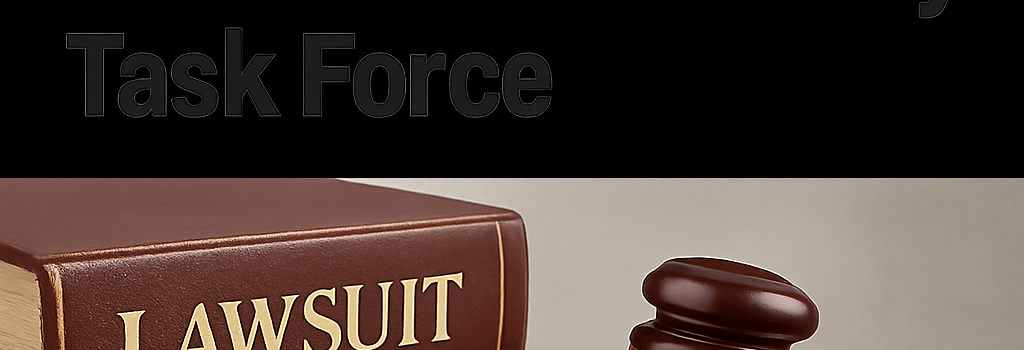Children’s Health Defense Sues HHS Over Vaccine-Safety Task Force

In a surreal twist, Children’s Health Defense (CHD) — the anti-vaccine nonprofit founded by current US Health and Human Services (HHS) Secretary Robert F. Kennedy Jr. — has filed a lawsuit against its own founder. The central allegation: under RFK Jr.’s leadership, HHS has failed to comply with a 1986 federal mandate to establish a Task Force on Safer Childhood Vaccines.
Background: The National Childhood Vaccine Injury Act of 1986
The National Childhood Vaccine Injury Act (NCVIA) of 1986 was designed to stabilize the US vaccine market by capping tort liability for manufacturers and creating a no-fault compensation program. Key elements include:
- National Vaccine Injury Compensation Program (VICP): Provides expedited redress to individuals with credible claims of vaccine adverse events, shielding manufacturers from costly litigation.
- Vaccine-Safety Task Force: A congressionally mandated panel to promote the development and refinement of vaccines with fewer and less severe adverse reactions.
While the VICP has disbursed over $4.5 billion in claims to date, the Task Force component has never delivered a single progress report to Congress. Archival records indicate it briefly convened in 1990 but was disbanded in 1998 without formal output.
Current Litigation: CHD vs. Kennedy
On July 22, 2025, CHD senior outside counsel Ray Flores filed suit in the US District Court for the District of Columbia alleging that Secretary Kennedy ignored a statutory obligation and a 60-day notice sent March 15, 2025. Statements from the complaint highlight:
- Allegations that childhood vaccines lack adequate safety testing — a position contradicted by decades of clinical trial data, phase IV post-marketing surveillance, and electronic health-record (EHR) based epidemiological studies.
- Demand for injunctive relief compelling HHS to convene the Task Force within 30 days and produce biennial progress reports thereafter.
“Why is he not dealing with vaccines? This is not the Bobby we know,” Flores said in a CHD social-media video. “Is he being held captive in the swamp?”
Technical Considerations: Vaccine Safety Monitoring Today
Modern vaccine‐safety surveillance relies on integrated IT systems across multiple federal agencies:
- Vaccine Adverse Event Reporting System (VAERS): Co-managed by CDC and FDA, collecting spontaneously reported adverse events.
- Vaccine Safety Datalink (VSD): A distributed data network linking EHRs from nine large healthcare organizations, enabling near real‐time pharmacoepidemiology studies.
- Post-Licensure Rapid Immunization Safety Monitoring (PRISM): An FDA system leveraging administrative claims data to detect rare side effects.
Experts note these platforms collectively enable signal detection through statistical algorithms (e.g., disproportionality analysis, sequence symmetry analysis) and causal inference methods (self-controlled case series). In this context, the NCVIA Task Force — if convened — would likely analyze:
- Advanced machine-learning approaches for pattern recognition in high-dimensional safety datasets.
- Standardization of adverse‐event coding (e.g., SNOMED CT, MedDRA) across clinical trials and observational data sources.
- Integration of genomic and immunophenotyping data to identify rare predispositions to vaccine reactions.
Additional Section: Regulatory Hurdles and Interagency Coordination
NCVIA specifies that the Task Force “shall consist of the Director of NIH, the Commissioner of FDA, and the Director of CDC.” To date, the latter post remains vacant. The chain of appointment involves:
- Presidential nomination and Senate confirmation for CDC director.
- Interagency data-sharing agreements (DSAs) between NIH, FDA, and CDC, detailing personnel, IT infrastructure access, and proprietary algorithm usage.
- Budgetary allocations in the annual HHS appropriation bill, which historically earmarked ~$2 million/year for Task Force operations (staffing, contractor support, data-analytic platforms).
Without a confirmed CDC director, legal experts argue that any convening of the Task Force could be challenged as noncompliant with statutory composition requirements.
Additional Section: Impact on Vaccine Development Ecosystem
Stakeholders in the biopharma sector view the lawsuit as a destabilizing factor:
- Startups & Innovation: Smaller biotech firms rely on predictable regulatory guidance and advisory committees to plan clinical development programs for novel platforms (mRNA, viral vectored, conjugate vaccines).
- Manufacturers: Large pharma companies invest >$1 billion on average to bring a vaccine from concept to licensure, requiring clear safety-monitoring pathways to mitigate post-market risk.
- Public–Private Partnerships: Initiatives like BARDA and CEPI emphasize harmonized safety evaluations across global jurisdictions; US Task Force inactivity may send mixed signals internationally.
Additional Section: Legal and Political Ramifications
Constitutional and administrative law scholars highlight:
- Potential ultra vires action if CHD prevails, compelling HHS to act beyond its executive‐branch discretion.
- Public‐policy implications: A court-mandated Task Force could constrain Kennedy’s ability to unilaterally amend vaccine schedules via the Advisory Committee on Immunization Practices (ACIP).
- Political fallout: The lawsuit pits RFK Jr. against both his former advocacy base and the broader public‐health establishment, risking confusion during concurrent outbreaks (measles, RSV).
Expert Perspectives
Dorit Reiss, Professor of Law at UC San Francisco: “This litigation looks performative. Federal health infrastructure already monitors vaccine safety at scale.”
Elizabeth Jacobs, Professor Emerita of Epidemiology at University of Arizona: “FDA, CDC, and NIH effectively operate as the de-facto Task Force through continuous data analysis and regulatory oversight.”
Outlook and Next Steps
The court is expected to set an initial hearing by late August 2025. Meanwhile, the Biden administration’s nominee for CDC director, Dr. Susan Monarez, awaits a full‐Senate vote. Her confirmation could resolve the statutory composition issue, enabling any incoming HHS leadership to stand up the mandated Task Force — or at least move forward any litigation‐driven timeline.
We will update this article with developments on the lawsuit, the Senate vote on CDC leadership, and any responses from HHS.